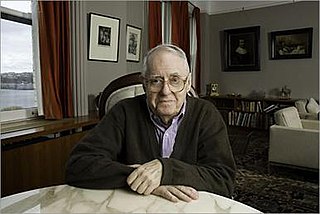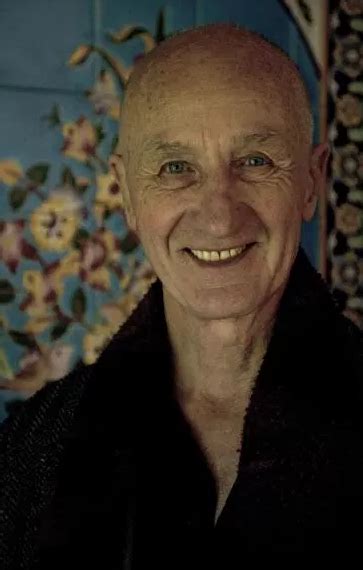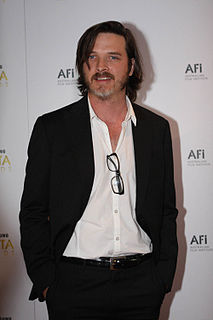A Quote by Peter Gay
There is something very intriguing about, for example, the sense of accomplishment that a small child has, which you might be able to reduce to aggression and libido, but which might also have some independent existence.
Related Quotes
You know, some of the portfolios we might consider buying are portfolios which would do especially well if we have an economy-wide, or I mean, a global climate change that impacts us very negatively there are some companies that will do well, and so it might make sense to hold some of those in your portfolio.
Thee might observe incidentally that if the state paid for child-bearing it might and ought to require a medical certificate that the parents were such as to give a reasonable result of a healthy child -- this would afford a very good inducement to some sort of care for the race, and gradually as public opinion became educated by the law, it might react on the law and make that more stringent, until one got to some state of things in which there would be a little genuine care for the race, instead of the present haphazard higgledy-piggledy ways.
the longer I live, the more necessary it seems to me to endure, to copy the whole dictation of existence to the end, for it might be that only the last sentence contains that small, perhaps inconspicuous word through which all laboriously learned and not understood orients itself toward glorious sense.
Eventually scientists will discover something that explains ghosts, just like they discovered electricity, which explained lightning, and it might be something about people's brains, or something about the earth's magnetic field, or it might be some new force altogether. And then ghosts won't be mysteries. They will be like electricity and rainbows and nonstick frying pans.
There is a certain sense in which I would say the universe has a purpose. It's not there just somehow by chance. Some people take the view that the universe is simply there and it runs along-it's a bit as though it just sort of computes, and we happen by accident to find ourselves in this thing. I don't think that's a very fruitful or helpful way of looking at the universe, I think that there is something much deeper about it, about its existence, which we have very little inkling of at the moment.
The first question she was asked was What do you do? as if that were enough to define you. Nobody ever asked you who you really were, because that changed. You might be a judge or a mother or a dreamer. You might be a loner or a visionary or a pessimist. You might be the victim, and you might be the bully. You could be the parent, and also the child. You might wond one day and heal the next.
For a woman as for a man, marriage might enormously help or devastatingly hinder the growth of her power to contribute something impersonally valuable to the community in which she lived, but it was not that power, and could not be regarded as an end in itself. Nor, even, were children ends in themselves; it was useless to go on producing human beings merely in order that they, in their sequence, might produce others, and never turn from this business of continuous procreation to the accomplishment of some definite and lasting piece of work.
The conception that government should be guided by majority opinion makes sense only if that opinion is independent of government. The ideal of democracy rests on the belief that the view which will direct government emerges from an independent and spontaneous process. It requires, therefore, the existence of a large sphere independent of majority control in which the opinions of the individuals are formed.
Certainly it's great to be able to talk to your friends about something. They might mention a film, and you can find all about it, and you don't have to wait months until you can find a book that might cover the subject and keep it in your head. You can have that kind of immediacy. But there's also something about it, where all the knowledge seems kind of fleeting. All the stuff I learn about in that way, I can be interested in for a day and then it's gone.
To make computer science more attractive to women, we might help young women change how they think about themselves and what's expected of them. But we might also diversify the images of scientists they see in the media, along with the decor in the classrooms and offices in which they might want to study or work.
The ego, as our familiar sense of self, seems predicated on fear. The fear that we might not make it, that we might not get where we want to go. But deep down there is also a grain of fear that we have nothing to give or nothing to offer. I think that's the ego's justifiable anxiety about its substantiality and existence.
You might argue that my example is bad because Einstein is dead. But according to physicist Erwin Schrodinger, Einstein is neither dead nor alive until we dig him up and open the casket. If he's alive, he might want his brain back, which I understand is in a Ziplock bag in some guy's freezer. And this is a perfect example of why examples always distract from the main point.
The only thing I might have noticed [and this is pretty anecdotal] is that there is some tendency to need to be taught that 'writing is rewriting' - maybe more of a sense than was pervasive 10 years ago that the first or second pass of a story is sufficient. That is an idea that is easily dislodged, but I suspect it might have something to do with the turnaround time re: blogging and so on - this sense that there is some essential truth about a first draft that one runs the risk of "ruining" by coming back to it.








































